With scientific research, we are going to answer – is coffee good for you? So many of our regular readers here at Clean Cuisine want to know if they can eat clean and still enjoy a cup of coffee.
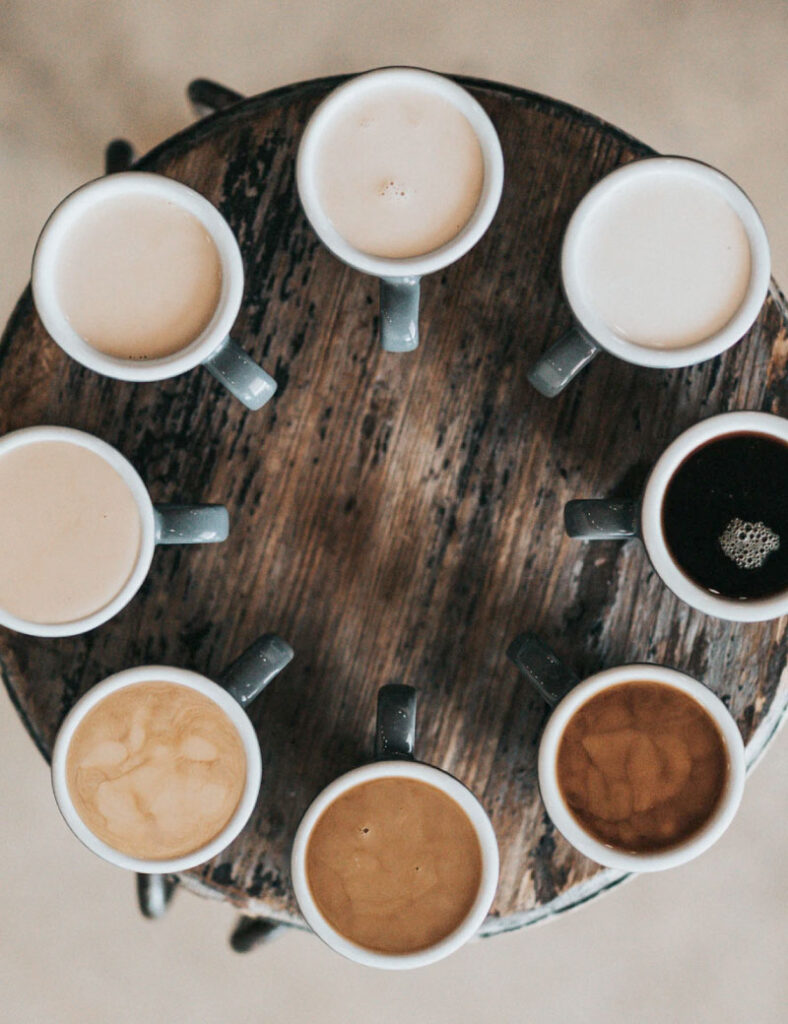
In this post, we are going to look at legitimate research published in mainstream medical journals such as JAMA , the New England Journal of Medicine, Annals of Internal Medicine and the Journal of Epidemiology. Overwhelmingly, the answer is YES!
So pour yourself a cup and read on…
Can I Eat Clean AND Drink Coffee?
We have poured through the research published in mainstream medical journals and we came to the decision that drinking coffee and eating clean could absolutely go hand in hand.
To this day, one of my all-time favorite health trivia tidbits comes from a Japanese cohort study published in the Journal of Epidemiology. The study showed that coffee consumption was associated with a decreased risk of death from ALL causes (1).
The more research we did, the more we were convinced that our daily coffee habit was far more helpful than it was harmful.
Is Coffee Good for You?
It looks like our favorite caffeinated beverage might finally be getting a well-deserved break. Since coffee was a very serious discussion for the 2020 Dietary Guidelines for Americans, we figured now was as good of time as any to chat a bit about the surprising health perks percolating in your morning cup of joe.
If you have not yet heard the news, the Scientific Report of the 2015-2020 Dietary Guidelines Advisory Committee for the first time ever in 2015, addressed caffeine and coffee. Not only does the report say caffeinated is OK—it even goes so far as to say it’s good for you. This was the same conclusion we made ourselves over a decade ago.
Much of the available evidence on caffeine focuses on coffee intake. Moderate coffee consumption (three to five 8-oz cups/day or providing up to 400 mg/day of caffeine) can be incorporated into healthy eating patterns. This guidance on coffee is informed by strong and consistent evidence showing that, in healthy adults, moderate coffee consumption is not associated with an increased risk of major chronic diseases (e.g., cancer) or premature death, especially from CVD.
2015-2020 Dietary Guidelines – page 33 of 144
We should point out here that we certainly do not always agree with government-endorsed food and nutrition recommendations, but we will be in agreement with the new guidelines should they come to fruition.
Why Do People Think Coffee Is Not Healthy?
A likely explanation could come from older studies linking coffee to an increased risk of heart disease and pancreatic cancer, among other things. But that research failed to account for the smoking that went hand in hand with coffee drinking years ago.
When scientists separated out the effects of smoking, they got a different picture. More recent cohort studies, following tens of thousands of people for many years, have found coffee drinkers do not have greater risk of heart attacks or strokes after all. In fact, they appear to have a slightly lower risk. Same goes for type 2 diabetes and gout.
The truth is there is very little legitimate research that coffee is harmful. I can’t tell you how many times I have seen it crossed off the clean eating diet list or bad-mouthed in nutrition books. These recommendations inevitably come without any research to back them up.
Keep in mind, the beans are loaded with antioxidants, some of which become even more potent during the roasting process. Antioxidants protect against oxidative stress by “mopping up” damaging free radicals that have been implicated in cancer, heart disease and the aging process in general.
Maybe you should pour yourself a second cup before you read on..

Research from Mainstream Medical Journals
If you have Parkinson’s, a family history of type 2 diabetes, stroke or heart disease, asthma, headaches, gallstones or liver disease. You may be thinking that it is in fact not good for you.
Surprisingly, that is not the case. We are going to tackle each of these areas — keep reading!
#1: Coffee and Parkinson’s Disease
But how in the world can a substance known to cause the jitters in some people actually help prevent a disease characterized by tremors? While it sounds absurd, research shows it’s true.
The Journal of the America Medical Association published results of a study examining 8,004 Japanese-American men. Men who did not drink coffee were five times more likely to develop Parkinson’s disease than men who drank more than 38 ounces (about 3 1/2 cups) of coffee daily. (4)
#2: Coffee and Type 2 Diabetes
Coffee also appears to provide protection from type 2 diabetes. Researchers at the Harvard School of Public Health and the Brigham and Women’s Hospital found study subject who regularly drank coffee had a significantly reduced risk of developing diabetes. This study was done over a twelve- to eighteen-year study period as compared to people who didn’t drink coffee. (2)
Another study reported in the Journal of the American Medical Association examined more than 14,600 people from Finland. (3) Researchers discovered that Finnish women and men who drank three to four cups of coffee daily had a great than 25 percent reduced risk of developing diabetes!
Is Coffee Good For Your Heart?
Massive population studies find it is innocent when it comes to causing heart disease. Again, another study reported in the Journal of the American Medical Association found no link between coffee consumption and heart disease, which was determined through a prospective study involving more than 85,000 women. (5)
Another study examining more than 45,000 men also showed no link between coffee containing caffeine and cardiovascular disease. (6)
#3: An Alternative to Asthma Medicine?
If you have asthma, combining an anti-inflammatory whole foods diet with coffee would be a much safer and healthier treatment than steroids. Two large studies, one performed in the United States (7) and one in Italy (8), showed a decrease of asthma among people who drink coffee. This is probably because caffeine is similar in its chemical structure to theophylline, an effective prescription asthma medicine.
#4: What About Headaches?
If all of this reading is giving you a headache, coffee might even be able to help you with that! One of the active ingredients in Excedrin, the popular headache medicine, is caffeine equivalent to about 1 1/2 cups. It has been shown to stop certain types of headaches, particularly migraine headaches, in their tracks.
#5: Gallstones and Kidney Stones
And believe it or not, studies even show coffee drinkers are less likely to develop gallstones and kidney stones when compared to non-coffee drinkers. After adjusting for variables, one large study from the Brigham and Women’s Hospital showed each cup consumed per day resulted in a 10 percent decreased chance of developing kidney stones in women. (9) A ten year prospective study following 46,008 men found that men who consistently drank two to three cups of regular caffeinated daily had a 40 percent decreased risk of symptomatic gallstone disease as compared to men who did not drink coffee. (10)
#6: Is Coffee Good For Your Liver?
If you read a lot of health and nutrition books, surely you have come across many that claim coffee is harmful to your liver. Or that it somehow interferes with your body’s ability to detoxify itself. Well, it turns out this just is not the case.
Not only is coffee not harmful to your liver, there is legitimate research showing it actually has benefits. In fact, the 2015 issue of the American Journal of Gastroenterology evaluated the association of coffee intake with liver cancer and death from chronic liver disease. The conclusion was:
“Increased coffee consumption reduces the risk of hepatocellular carcinoma and chronic liver disease in multiethnic US populations.”
Over the past 20 years, an increasing number of epidemiological and experimental studies have demonstrated the positive effects on chronic liver diseases.
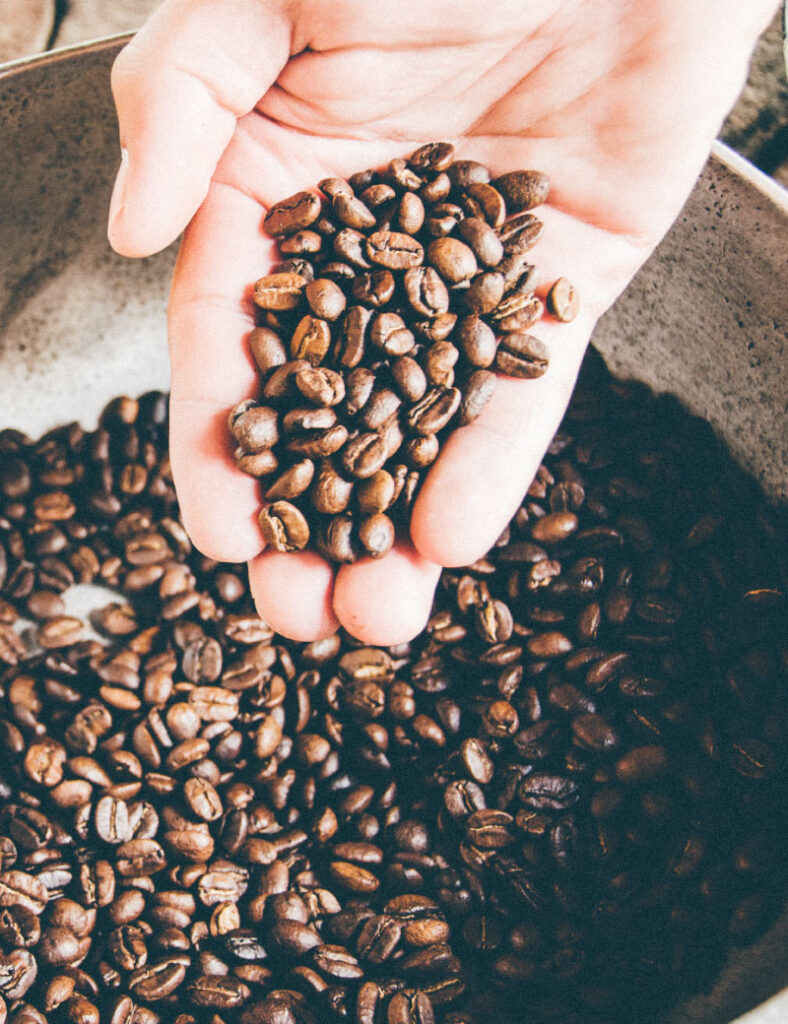
What About Drinking 10 Cups a Day?
The latest scientific evidence indicates drinking two to three cups per day is not harmful. And, as we now know, most likely helpful. However, the association between consumption and good health surely comes to an end somewhere around the fifth or sixth cup and certainly by the tenth!
The point is, excess is never healthy no matter what. And for the record, research has actually linked more than three cups of caffeinated coffee a day to bone fractures in women.
Also, some people find that they cannot tolerate it as well as they get older. I would say that if you get the jitters or an upset stomach after drinking coffee then you should either not drink it at all, or reduce the amount. And, if you have trouble sleeping at night, you should probably have your last cup around noon.
The BIG Downside
In our opinion, the biggest health risk from coffee is weight gain. And no, drinking a 2-calorie cup of black coffee is not what causes weight gain. The weight gain associated with drinking it can directly be correlated with what you put in it. It’s the 400 calorie Starbucks White Chocolate Mocha and the frappuccinos with mile-high mounds of whipped cream that pack on the pounds.

Is Black Coffee Good For You?
Just to be clear… black coffee is not going to cause weight gain. But, what if you don’t like it black? Then you’re with me. I can’t stomach mine black but I did stop adding sugar over a decade ago. I just didn’t think I could ever go without the cream.
Until now… enter my homemade Iced Coffee recipe, which is strikingly similar to the Starbucks Vanilla Latte.
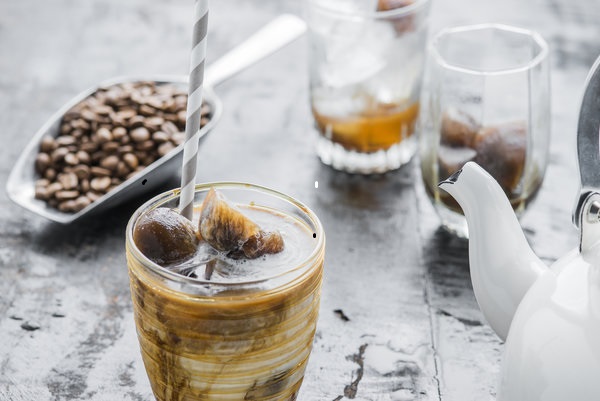
Making this recipe with a new “whole food” trick that has finally enabled me to drink mine sans dairy. I’ve even found a healthful “whole foods” way to sweeten it too.
Click HERE for my favorite caffeinated drink made with a dairy-free whole food creamer and whole food sweetener.
In the meantime, if you drink coffee I would stick with a basic cup of black, no sugar and just go easy on the cream. And if you are making your joe at home, you might as well buy organic cream, ideally from cows raised on green pasture.
References
1. Iwai N, et al. “Relationship between coffee and green tea consumption and all-cause mortality in a cohort of a rural Japanese population.” J Epidemiology. 2002 May; 12(3): 191-8.
2. Salazar-Martinez E, et al. “Coffee consumption and risk for type 2 diabetes mellitus.” Ann Intern Med. 2004 Jan 6; 140(1):1-8
3. Tuomilehto J, et al. “Coffee consumption and risk of type II diabetes mellitus among middle-aged Finnish men and women.” JAMA. 2004 Mar 10;291)10): 1213-9.
4. Ross GW, et al. “Association of coffee and caffeine intake with the risk of Parkinson’s disease.” JAMA. 2000 May 24-31;283(20):2674-9.
5. Willet WC, et al. “Coffee consumption and coronary heart disease in women. A ten year follow-up” JAMA. 1996 Feb 14;275(6): 458-62.
6. Grobbee DE, et al. “Coffee, caffeine and cardiovascular disease in men.” N Engl J Med. 1990 Oct 11;323(15):1026-32.
7. Schwartz J, Weiss ST. “Caffeine intake and asthma symptoms.” Ann Epidemiol. 1992 Sept; 2 (5):627-35.
8. Pagano R, et al. “Coffee drinking and prevalence of bronchial asthma.” Chest 1988 Aug; 94(2):286-9.
9. Curhan GC, et al. “Beverage use and risk for kidney stones in women.” Ann Intern Med. 1998 Apr 1; 128(7);534-40.
10. Leitzmann MF, et al. “Prospective study of coffee consumption and the risk of symptomatic gallstone disease in men” JAMA. 1999 Jun 9; 281(22):2106-12.
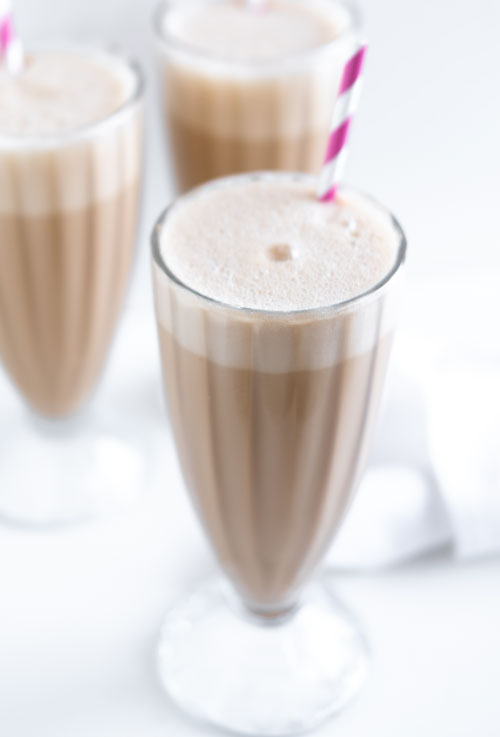
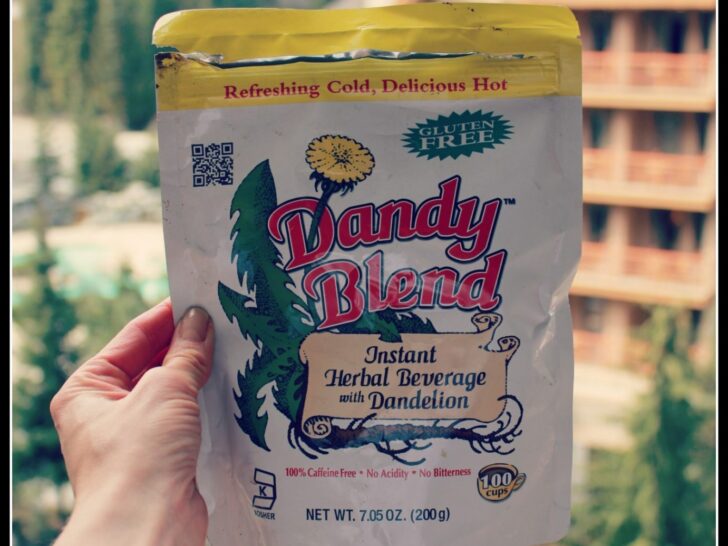
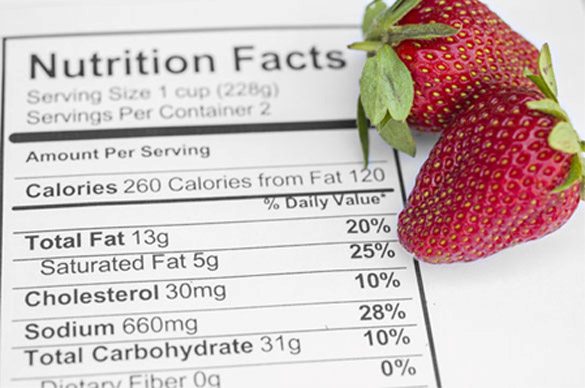


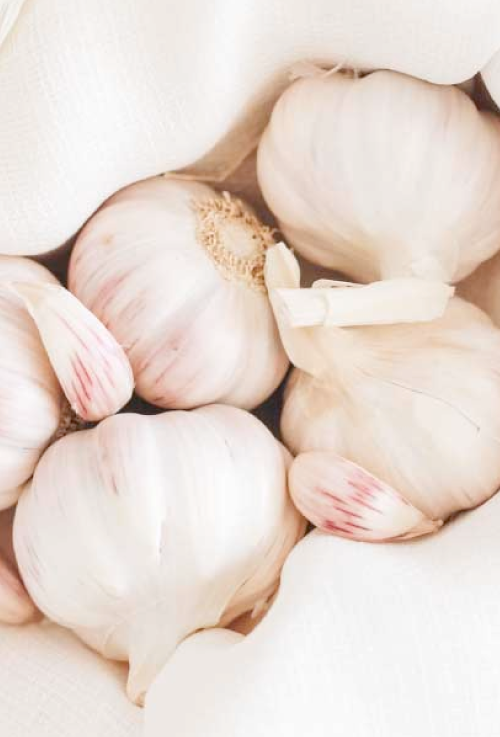
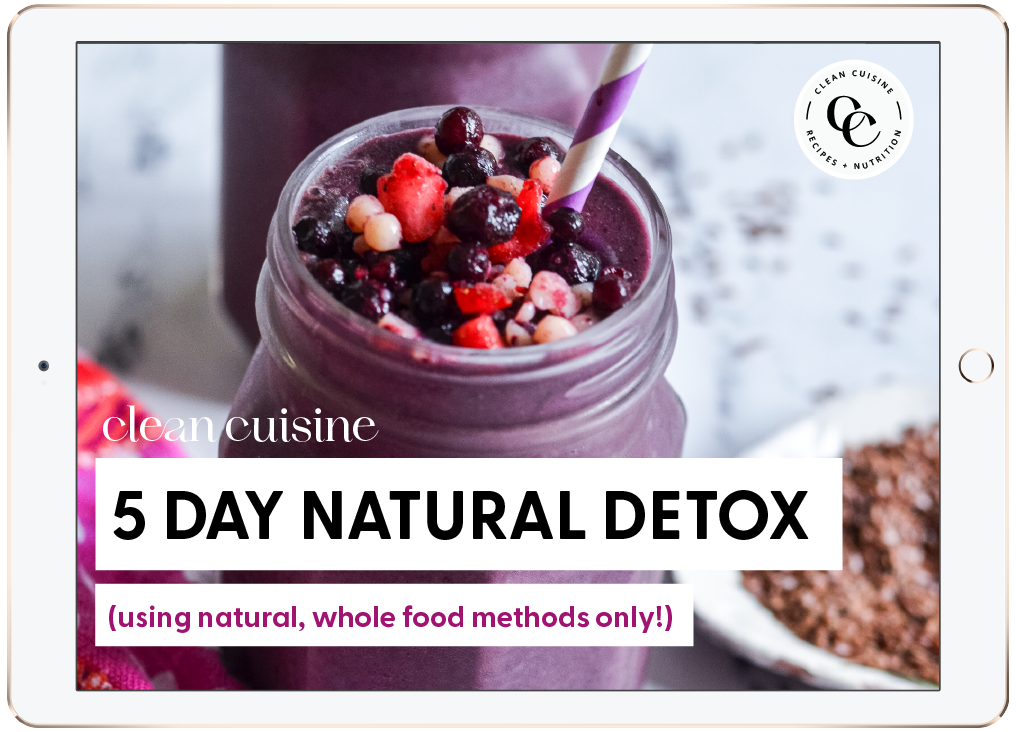
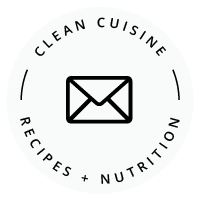
Noelle
Thursday 31st of March 2016
I seriously want to believe that I can continue drinking my beloved coffee (one cup a day) but there is one thing I'm perplexed about: fertility!
Have you looked at coffee and fertility? I've read some studies that say waiting time to pregnancy and miscarriage is increased with even one cup of coffee per day, but there's a well-regarded Kaiser Permanente study showing that consumption of caffeinated black or green tea actually doubled pregnancy chances: http://www.ncbi.nlm.nih.gov/pubmed/9491020.
So that seems to vindicate caffeine, at least... curious to know if you've looked at any of the studies on coffee and fertility? Thanks!
Ivy Larson
Tuesday 5th of April 2016
Hi Noelle,
Thank you so much for weighing in here---I was not able to access the full article but here is what I pulled as the abstract below---it seems consumption of coffee/ tea DOUBLED the chances of conceiving!! That is INCREDIBLE! I have never heard of this but one thing I do know, is that just about anything that increases fertility is good for you. Of course I know if you do NOT want to get pregnant that might not be what you want to hear---and I am adamantly against birth control (not for religious reasons, but for health reasons for the woman) --so I know birth control can be a problem if you don't want a lot of children and you are still in childbearing years. Having said that---just reading the abstract of this study further makes me want to keep drinking my coffee. I just turned 40 yesterday, so I don't want more kids, just want to be healthy at this stage ;)
The effect of caffeine consumption on fertility was examined prospectively in 210 women. METHODS: Women reported on caffeinated beverage consumption and pregnancy status monthly. Odds ratios for becoming pregnant were calculated for both high and moderate vs low consumption. RESULTS: No significant association was found for any of the caffeinated beverages except tea. Drinking one-half cup or more of tea daily approximately doubled the odds of conception per cycle. CONCLUSIONS: These data suggest that caffeine may not be the responsible agent for variation in fertility associated with consumption of the beverages examined.